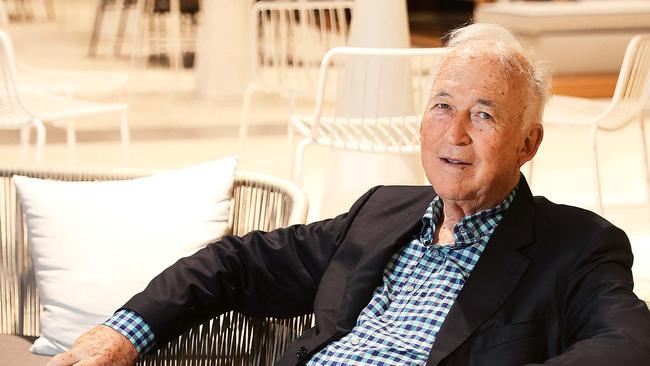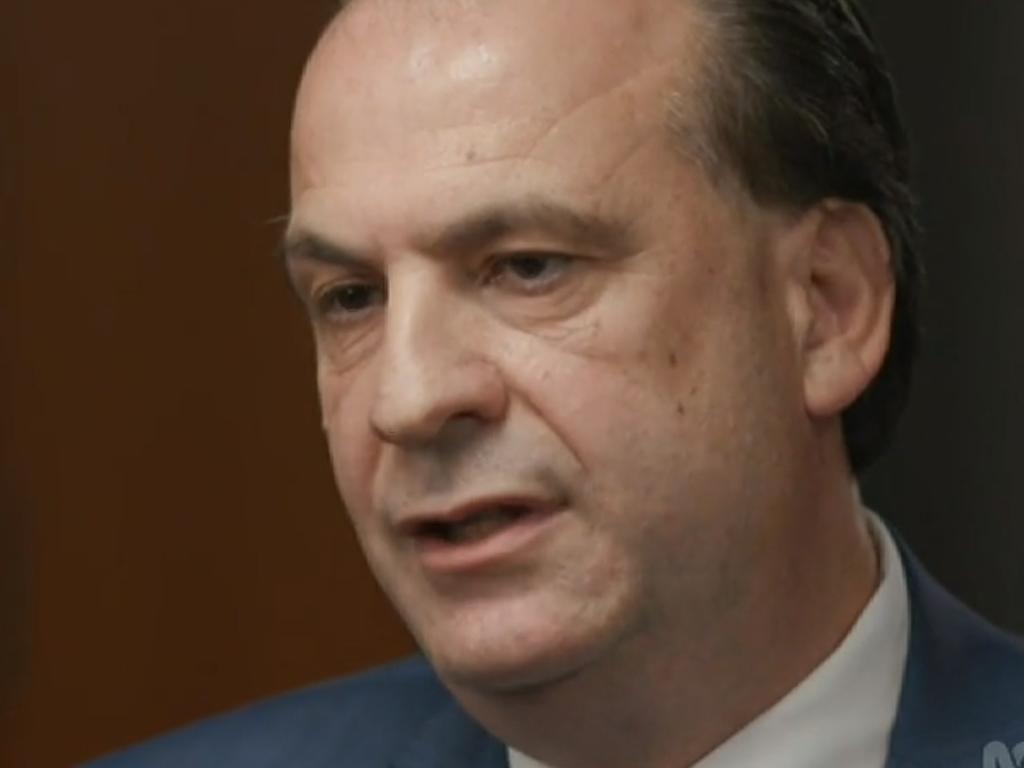Pandemic delivers higher revenue for Cowin’s Hungry Jack’s
The uninitiated in takeaway food are now using it and ‘don’t want to get out of their cars’ boosting the cornerstone business of the Jack Cowin empire.

Billionaire Jack Cowin says COVID-19 has accelerated the trend towards more people getting their fast food delivered or picking up their meals via drive-through services by at least three years.
So quickly has the trend developed in the past few months, Cowin tells The Australian, that his Hungry Jack’s chain of fast food businesses, has actually experienced an overall increase in revenue since the global pandemic led to much of Australia first shutting down in mid-March.
“Our business has been very fortunate, as we’ve still had home delivery and drive-throughs. Those two factors means that those people who are concerned about coming into contact with the coronavirus have still been transacting, rather than using the dining room [at Hungry Jack’s outlets].
“So our business has been positive against the previous year. And what happens is that people usually spend more at the drive-through and with home delivery. So we are very fortunate and a bit lucky too, I guess. It is the cafes and restaurants where they’ve had their dining rooms shut that have had a more difficult time.”
Cowin, whose wealth was estimated at $3.34bn when The List - Australia’s Richest 250 was published by The Australian earlier this year, says he has only spent one day out of his office on the fringe of Sydney’s CBD since the pandemic hit Australia.
“I stayed home one day and my wife said all you do is spend your time on the telephone. So I went back to the office where I could spend my time on the telephone there instead.
“We have an office with only five people working in it, so as long as the five are okay I’ll continue to keep coming in.”
Cowin last year celebrated 50 years as the country’s fast food king, having first moved to Perth from Canada in 1969 to establish a KFC franchise after borrowing $10,000 from 30 fellow Canadians to start the venture.
The last of the KFC outlets he owned sold in 2013 and Cowin’s private Competitive Foods business now has more than 400 Hungry Jack’s franchises around Australia. The business had about $1.58bn revenue in the 2019 financial year, making a $24.1m profit.
Permanent changes afoot
That experience means Cowin has seen it all when it comes to fast food consumption patterns during his long career, but he believes there are some permanent changes afoot as a result of COVID-19.
“We think there definitely have been changes. Those with the crystal balls in the company say that the home delivery business which is booming has gained three years [growth].
“This is because the uninitiated who never ordered it from home before are doing so or they don’t want to get out of their car when they go to get their food.”
Cowin says the business - and the wider sector - was lucky back in March when the Australian government did not initiate a stronger lockdown: Cowin says that would have also seen the takeaway and fast food sectors mostly close - a situation he had feared and led to Hungry Jack’s writing to landlords and proposing a deferral of its gross rental payments.
But Cowin insists that due to the improvement in business conditions, his business “was now back to normal” regarding the rent payments.
He also said sales of the Hungry Jack’s plant-based Whopper hamburger have been steady, noting that “the millennial customer is buying anything that they think is climate and environmentally friendly”.
Cowin is also the biggest shareholder in the ASX-listed Domino’s Pizza Enterprises, which has also experienced strong growth in home deliveries and will report its financial results to investors on August 19. Domino’s shares are up 41 per cent since January 1 and are trading back at the record highs reached in mid-2016.
The US Domino’s business, which Cowin also has shares in, experienced sales increases of 16-17 per cent in the latest quarter as customers turn to brands they trust especially around issues of hygiene and zero contact delivery amid the coronavirus pandemic.
Cowin also owns a majority stake in Houston oil and gas firm Apache Industrial Services, which has surfed the energy sector boom in Texas in recent years.
But Cowin says the business has been hit by the “double whammy” of falling energy prices and coronavirus.
“The good news is that business services the oil and gas sector and that has classified as essential services. So they have at least been doing maintenance, but everyone over there is keeping their heads down.”








To join the conversation, please log in. Don't have an account? Register
Join the conversation, you are commenting as Logout